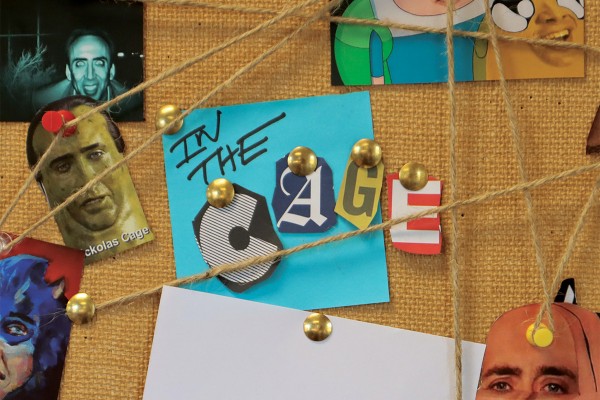Captain Corelli’s Mandolin is probably only notable for the fact that it is another period piece so the Cage has an Italian accent that is more Mario than Chris Pratt was. It is devastatingly long and watching it after Sinners – one of the best films to come out this year, by the way – makes it an even more painful experience.
Merry Cage-mass again with A Christmas Carol: The Movie, an animated film where the Cage voices a ghost but not one of the big three (past, present, and future). Honestly, I am only familiar with this story through the terrifying Robert Zemmickis motion capture film which I saw once as a child, and Epic Rap Battles of History with Scrooge vs Trump. It’s a story that I am not the fondest of (refer to last week's column where I mentioned my love for It’s a Wonderful Life) and shitty animation and boring voice performances, with the exception of Michael Gambon, do not change a thing.
The Cage reunited with Face/Off director John Woo for 2002’s Windtalkers. I managed to find the director's cut that added another 20 minutes to the film, giving it a total run-time of two and a half hours. The war epic was set to be released in 2001 but due to 9/11 the film was pushed back. This makes sense as one of the first scenes in the film is a gruesome depiction of war not too dissimilar to Speilbeirg’s Saving Private Ryan, which was praised for its realism concerning D-Day. However, this scene is severely undercut by a score that enters in halfway through the scene and completely misses the point and almost sounds triumphant in tone as soldiers are getting slaughtered.
I knew that I would have a problem with this film because I have it with all war films – they’re inherently paradoxical. All films that want to depict the “realness” of war claim to be anti-war, but from my perspective they will still always be pro-war. When the Americans die it is sad and traumatic but when the ‘Japs’ are blown up it is heroic and cool. The war film still depicts the “excitement” of combat and the need for patriotism to stop the greater evil (by invading other countries). For example, the only scenes that were interesting to watch in Ridley Scott’s Napoleon were the war scenes because they were exciting. Woo’s directing is at times comical with its use of the zoom lens and slow motion that take out all of the impact meant to be felt during scenes concerning the Cage and his PTSD. I’m sure half the run-time could be spared if there was less slow motion.
Throughout this saga I’ve started to wonder: would I like these movies better if I had nothing to compare them to? A lot of these films are cliché to their respective genres but I only know that due to my exposure to other films. It’s probably why in those Letterboxd ‘Four Favourites’ interviews actors and directors are picking obscure films instead of Pulp Fiction, because they’re so unlike what they’ve seen before. I liked a lot of bad films when I was younger because I did not know any better. I enjoyed Cars 2 and Shrek the Third like any other child would, but with more experience and understanding I now know they are dog shit. I can’t enjoy these war films, Christmas films or rom-coms as much because I’ve spent my life learning these stories beat by beat, and there’s only so much story to tell.
Caginess: I’m more patriotic for the Cage than America
Welfare Check: Had an existential crisis about film
Total Films Watched: 49/137







